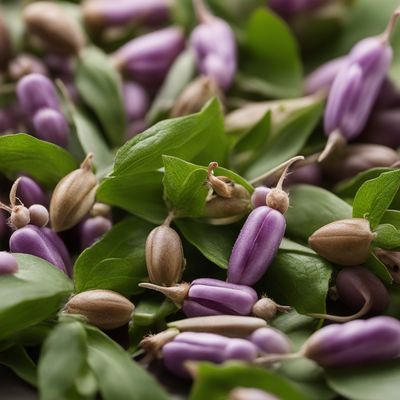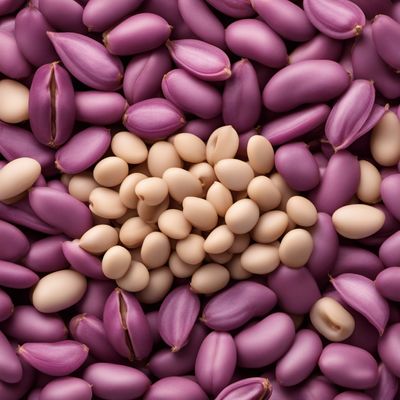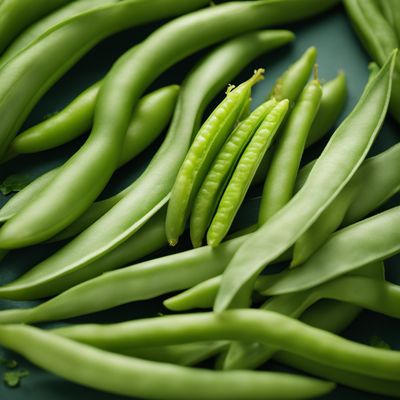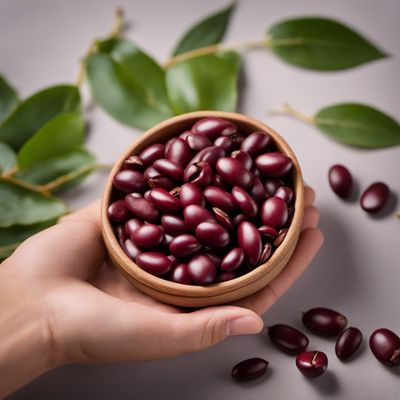
Ingredient
Jack beans (with pods)
The Versatile Legume: Jack Beans with Pods
Jack beans with pods are large, flat, and green legumes that have a slightly sweet and nutty taste. They have a firm yet tender texture, making them perfect for stir-fries, soups, and stews. The pods are slightly fibrous and encase the beans, which can be cooked and enjoyed as a whole or shelled and used separately.
Origins and history
Jack beans, also known as Canavalia ensiformis, are native to tropical regions of the Americas and have been cultivated for centuries. They have a rich history in traditional cuisines, particularly in Latin American and African dishes. These legumes have played a significant role in providing sustenance and nutrition to various cultures throughout history.
Nutritional information
Jack beans with pods are a good source of protein, dietary fiber, and essential minerals such as iron and magnesium. They are also low in fat and calories, making them a nutritious addition to a balanced diet.
Allergens
There are no known allergens associated with jack beans with pods.
How to select
When selecting jack beans with pods, look for fresh, vibrant green pods that are free from blemishes or discoloration. The pods should feel firm and crisp to the touch. Avoid pods that are overly mature or have a yellowish hue, as they may be tough and less flavorful.
Storage recommendations
To store jack beans with pods, place them in a perforated plastic bag or a container lined with a damp paper towel. Store them in the refrigerator for up to 5 days. For longer-term storage, blanch and freeze the beans after shelling them.
How to produce
Jack beans with pods can be grown in warm climates with well-drained soil. They require full sun exposure and regular watering. Sow the seeds directly into the ground or in containers, ensuring a spacing of about 6 inches between each plant. Provide support for the vines to climb as they grow.
Preparation tips
To prepare jack beans with pods, start by removing the beans from the pods. The beans can be cooked whole or shelled and used separately. They can be boiled, steamed, stir-fried, or added to soups and stews. The pods can also be cooked and enjoyed as a crunchy and nutritious snack. Remember to discard any tough or fibrous parts of the pods before cooking.
Culinary uses
Jack beans with pods are commonly used in various cuisines around the world. They are often added to stir-fries, curries, soups, and stews. In Latin American cuisine, they are a key ingredient in dishes like feijoada, a traditional Brazilian black bean stew. In African cuisine, they are used in dishes such as akara, a deep-fried bean fritter. They can also be pickled or used as a topping for salads and sandwiches.
Availability
Jack beans with pods are commonly available in tropical regions of the Americas, including countries like Brazil, Mexico, and Nigeria.
More ingredients from this category » Browse all

Ervils (with pods)
The Versatile Legume: Ervils

Monantha vetches (with pods)
The Podded Delight

Lablab beans (with pods)
The Versatile and Nutritious Lablab Beans: A Pod of Health and Flavor

Black gram (young pods)
The Green Delicacy: Black Gram Young Pods

Yardlong beans (with pods)
The Versatile Veggie: Exploring Yardlong Beans

Stink beans (with pods)
The Pungent Delicacy: Stink Beans

Soyabeans (with pods)
The Mighty Legume: Exploring Soyabeans (with Pods)

Slicing bean (young pods)
The Versatile Delight: Exploring the World of Slicing Beans

Vetches (with pods)
The Versatile Vetches: Pods Packed with Potential

Guar beans (with pods)
The Versatile Guar Bean: A Nutrient-Rich Pod of Possibilities

Broad beans (with pods)
The Verdant Gems: Exploring the World of Broad Beans

Azuki beans (with pods)
The Versatile Azuki: A Nutrient-Packed Legume with a Crunch